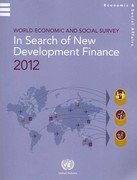Question
Communism was established in China in 1949 by: a. Vladimir Lenin. b. Joseph Stalin. c. Marshal Tito. d. Mao Zedong. Government tax and expenditure policies
Communism was established in China in 1949 by:
a. Vladimir Lenin.
b. Joseph Stalin.
c. Marshal Tito.
d. Mao Zedong.
Government tax and expenditure policies that affect real GDP are called
a. automatic fiscal policy.
b. discretionary fiscal policy.
c. fiscal policy.
d. supply-side policy.
In the former Soviet Union, the quantities of output and prices to be charged by key firms were determined by:
a. the firms.
b. Gosbank.
c. Gosplan.
d. demand and supply.
Transfer payments typically
a. rise during expansionary periods.
b. fall during recessions.
c. do not change as the economy expands and contracts during the business cycle.
d. fall during expansionary periods and rise during recessionary periods.
The central planning agency of the Soviet Union was the:
a. KGB.
b. Bao Gan Dao Hu.
c. Manifesto.
d. Gosplan.
The Russian term for restructuring is:
Select one:
a. perestroika.
b. gorbachev.
c. ziyang.
d. gosplan.
The impact of instituting investment tax credits is
a. to stimulate private sector investments and increase aggregate demand.
b. to stimulate private production and increase aggregate supply.
c. to encourage individuals to save in an effort to increase funds available for investment.
d. to curtail in excessive lending by financial institutions.
As it relates to reform in former Soviet countries, privatization means:
a. selling publicly owned property to private buyers.
b. demonopolization of state industry.
c. price liberalization.
d. controlling the private section.
Recognition lags in fiscal policy stem largely from
a. the fact that it takes time before a fiscal policy, such as a change in government purchases or a change in taxes, is agreed to and put into effect.
b. the fact that it takes time for a policy action to have its full effect on aggregate demand.
c. the difficulty of collecting economic data in a timely and accurate fashion.
d. households and businesses may not respond to fiscal policy to the extent that policy makers had hoped, for example, they may not be as responsive to a tax cut .
Central planning proved to be a failure in communist countries in part because of:
a. abundant market information.
b. unquestioned reliance on the price system.
c. insufficient use of government ownership.
d. inadequate rewards for innovation.
Step by Step Solution
There are 3 Steps involved in it
Step: 1

Get Instant Access to Expert-Tailored Solutions
See step-by-step solutions with expert insights and AI powered tools for academic success
Step: 2

Step: 3

Ace Your Homework with AI
Get the answers you need in no time with our AI-driven, step-by-step assistance
Get Started


